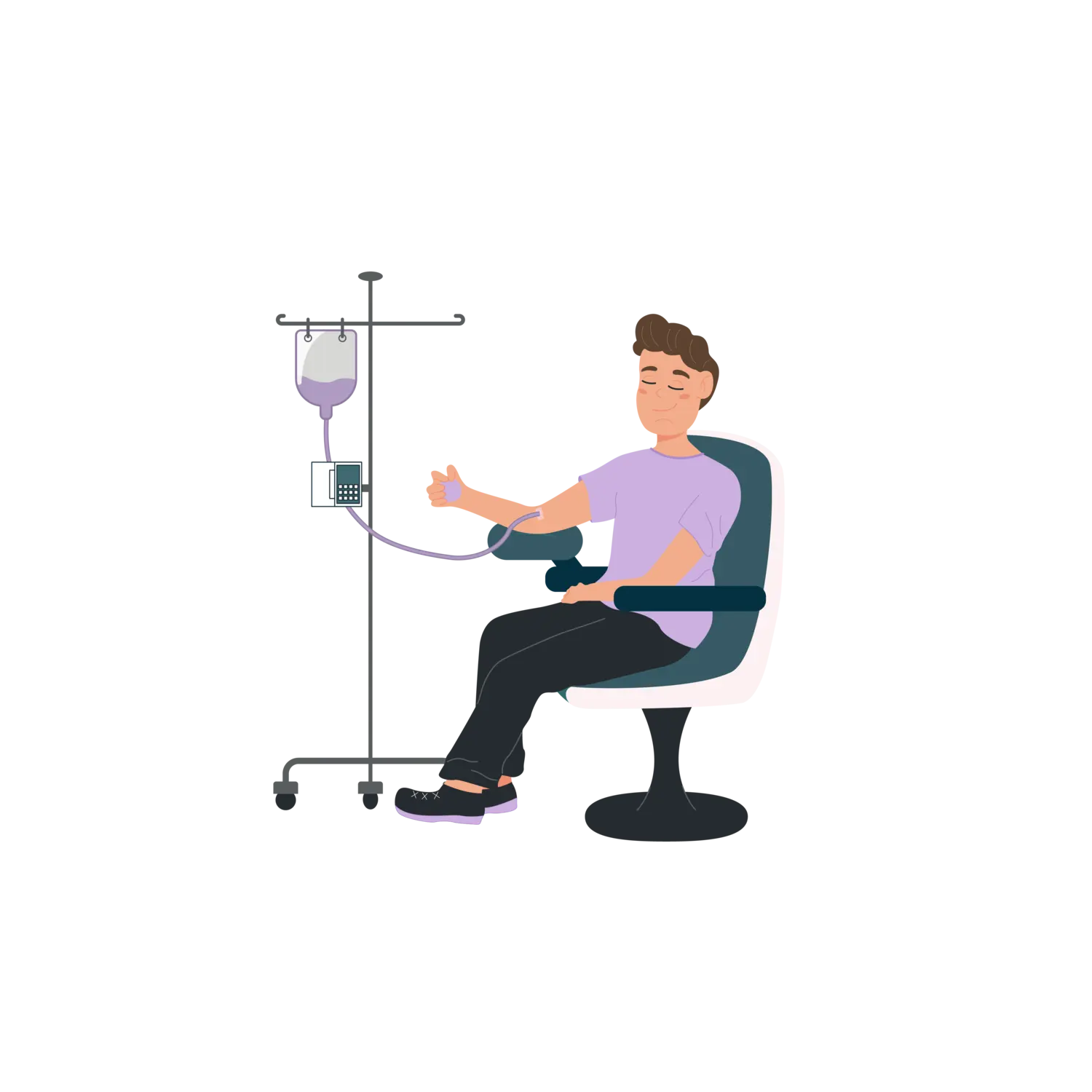Pros and Cons of infusion therapy?

Infusion therapy is a medical treatment that is commonly used in hospitals and infusion centers. Through this therapy, fluid medication is transmitted to the body in the bloodstream, which can help you cure different medical conditions. This treatment is a safe and more accessible option for people who can’t take medicines from their mouths.
However, it is a convenient option, but some people experience side effects because of their medical condition, allergic reaction, and improper movement of the needle. These conditions can create problems for people. To deeply understand this therapy, you’ll learn the pros and cons of infusion therapy in this blog. So, let’s delve in!
Pros of Infusion Therapy
Precise Medication to Affected Area
A big plus when you talk about infusion therapy is that medicines are delivered very accurately and in a controlled way. By skipping the digestion process, medicines go right into the blood without waiting to absorb it. This makes treatment quick and strong that provides better results than oral medications.
There are many people who don’t prefer taking oral medicines because they have some issues with them. People who can’t take oral medication can go for infusion therapy without any doubt. There are many infusion services and hospitals that provide these treatments according to medical diseases.
Good Option for Chronic Diseases
Injections help a lot in looking after ongoing diseases like auto-immune problems. Because of chronic conditions, we find ourselves dealing with illnesses when the body’s defense falls short. These therapies are also very important for treating health issues such as multiple sclerosis and so on. It helps keep illness from coming back, control problems, and make life better for patients.
Thus, if you have any type of chronic condition and you face difficulty in seeing visible results from oral medication, you can go for infusion treatment.
Treatment Plans According to Patients
Health workers can change infusion treatment to suit what each patient really needs. This change makes sure each person gets the best care for their special problem. Your doctor will take your medical history, deeply understand your medical condition, and provide you with a customized plan that will provide more effective results than oral medicines. It is one of the important benefits of infusion therapy that people with chronic diseases or cancer can choose.
Affordable Healthcare
Giving medicines through injection can save money by stopping people from returning to the hospital and making stays shorter. This way, we don’t have to spend as much on treatment options that are costing a lot less.
Better Medicine Absorption
You can get it through infusion therapy to enhance the effectiveness of the medicine. Through infusion therapy, medicines can be directly injected into the blood flow, which will treat issues in less time.
Cons of Infusion Therapy
Risk of Infections
A big problem with infusion therapy is infection. Putting needles or tubes into the blood can bring in germs. This may cause blood attacks all over and local area infections where it goes inside. For most people, infusion therapy is safe, but some people experience infections after getting medicines injected that sometimes result in serious issues.
Allergic Reactions
One of the common drawbacks of infusion therapy is allergic reactions. Some people experience allergies when they get the medication directly into their bloodstream. Some patients might get allergic reactions to the drugs or liquids given during infusion therapy. In many infusion centers, medical experts test medication that helps them know if the person is allergic or not. If they find any reactions, they instantly provide anti-allergic drugs to control the situation.
These reactions can go from simple itching to very serious, life-threatening anaphylactic responses. Thus, if you think you’re allergic to a specific drug or medication, it is essential to inform your healthcare professional. They will make sure to provide you with medication that doesn’t result in an allergic response after or during infusion therapy.
Discomfort and Pain
Putting in needles or tubes can hurt and make you uncomfortable, especially when they are inserted. Even though doctors try to make treatment feel better, some patients might still be in pain. There are so many people who are afraid of needles, and when they get pain while inserting them, they feel uncomfortable.
However, healthcare professionals with less experience may result in hurting the patient. Therefore, make sure to select the best infusion center that has qualified staff. At HealthQuest, there are qualified staff members who make sure their patients are getting the best services.
Swelling In Veins
Swelling of the vein can happen because of irritation from putting fluid in. This is caused by using saline for infusions that causes it to be red. Signs could be redness, soreness, and swelling at the spot where medicine is given. If there is minor swelling, it can be gone after some time, but if you’re experiencing it for days, it is essential to seek a doctor’s help.
Dehydration
It’s very important to watch the amount and speed of fluids carefully when giving IV medicine. Giving a lot of fluid really fast can cause too much liquid in the body. Not giving enough water can make someone dry and tired. Hence, it is essential to provide hydration to the affected area so it can heal faster.
The Bottom Line
Infusion therapy is one of the effective techniques to get medications in case of multiple medical conditions and cancer. It provides wellness, hydration, nutrients, precise medications, and customized plans that help people cure many health issues. However, it has some side effects for some people who have allergies or complicated medical issues. But if your doctor has recommended it to you, it is essential to get it from a well-reputed infusion therapy. To connect with a reliable infusion therapy, call us at (832) 612 3500.